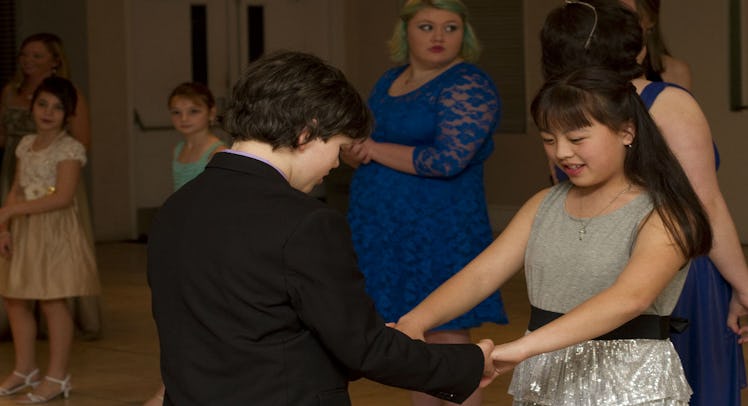Elementary School Hosts Sixth Grade Valentine’s Day Where Girls Can’t Say ‘No’ If Asked
Despite the pushback school officials don't appear to be changing their minds.

A school in West Haven, Utah is under fire for a policy mandating that girls say “yes” when boys ask them to dance at the upcoming Valentine’s Day dance.
According to the local Fox News affiliate, school officials at Kanesville Elementary say they imposed the very peculiar rule in an effort to teach kids how to be “inclusive.” One mother, however, is voicing serious concerns about the message it sends.
Natalie Richard, the mother of a sixth-grade girl who attends the school, said the rule teaches kids wrong lessons about consent and interacting with the opposite sex. After asking a teacher about the rules and whether her daughter had the ability to say “no”, Richard reported that “the teacher said she can’t. She has to say yes. She has to accept.” Richard took her concerns to the school’s principal Justin Willie, but was essentially told that because the school had imposed the rule in the past without issue, doing it this time should be fine as well.
Lane Findlay, who works with the Weber School District under which West Haven falls, said the point of the dance is meant to teach students how to be inclusive.
Prior to the dance, students are asked to fill out a card with the names of five people with whom they would want to dance, and students are encouraged to make it known if someone of the card makes them uncomfortable. Regardless, the rule, per Richard, “sends a bad message to girls that girls have to say ‘yes,’” and “sends a bad message to boys that girls will — can`t say ‘no.’”
Richard, of course, is right. The dance’s framework undermines the very idea of consent. Even if the school’s intent is to make sure no one feels the sting of rejection, telling a young girl that she must say yes to a boy renforces the idea that they are not allowed to be in control of themselves.
Last year, the Girl Scouts penned an open letter urging parents to remind their daughters that they didn’t have to hug or touch anyone, even relatives, during the holiday season. “The notion of consent may seem very grown-up and like something that doesn’t pertain to children,” said Girl Scouts’ developmental psychologist Dr. Andrea Bastiani Archibald in the letter, “but the lessons girls learn when they’re young about setting physical boundaries and expecting them to be respected last a lifetime and can influence how she feels about herself and her body as she gets older.”
Dr. Bastiani’s assessment is echoed in a survey commissioned by Planned Parenthood that said more than 70 percent of people think that middle schools should teach children about how to ask for and give consent. Moreover, of the people surveyed, only 14 percent said they’d learned about consent when they were middle school aged, and to take the conversation a step further, the percentage of people who think consent should be taught in school only increases as children get older and enter high school and college.
As of right now, the dance at Kanesville Elementary is still on. School officials don’t seem any more inclined to rethink the harmful rule. “If there is an issue, if there’s students that are uncomfortable or have a problem with another student, I mean, that’s certainly something that can be addressed with that student and parents,” Findlay said.
This article was originally published on